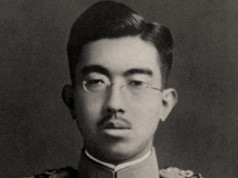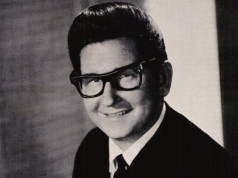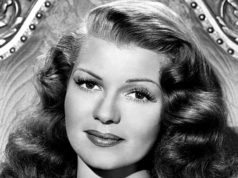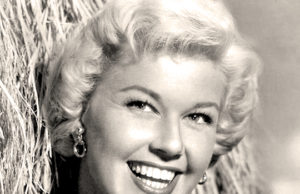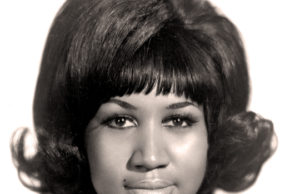Wikimedia Commons / CC-BY-SA-3.0 / GFDL
Ayatollah Ruhollah Khomeini
(Iranian Leader)
24 September 1902 – 3 June 1989 (Aged 86)
Ayatollah Khomeini was the supreme religious leader and founder of Iran as an Islamic republic.
He was the leader of the Iranian Revolution in 1979, which saw the Shah of Iran overthrown, and the end of the Persian monarchy’s 2,500-year rule.
The Revolution saw Khomeini named as Iran’s political leader for life. His role in the Middle East’s seismic political shift saw him named as Time magazine’s Man of the Year in 1979.
In the early 1960s, Khomeini began speaking out against the actions of the Shah, which, on more than one occasion, led to his arrest, imprisonment, before he was eventually deported to Turkey in the winter of 1964.
In the following years, Khomeini lived in Iraq for over a decade and also lived in France, prior to his triumphant return to Iran in 1979.
His rule was hugely influential, with his Shia Muslim doctrines taught in Iranian schools.
Khomeini at the age of 86, following a number of heart attacks in his final days.
It is estimated that over 2.5 million people attended the Ayatollah’s funeral in the capital, Tehran.
He remains a revered figured in Iran, while his tomb has become a shrine to supporters.
Laurence Olivier
(Actor)
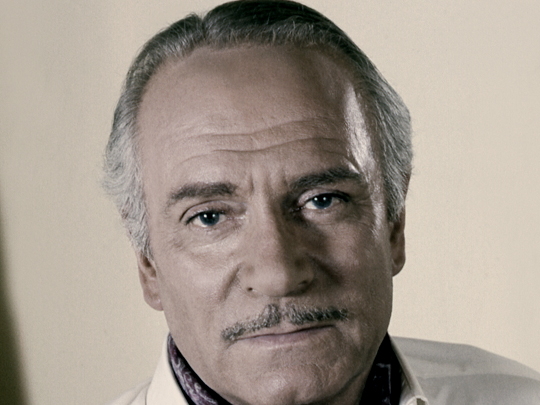
22 May 1907 – 11 July 1989 (Aged 82)
Olivier was a brilliantly gifted English actor, best known for his legendary performances in Shakespearean plays on stage and screen.
Among his greatest roles are Richard III, Oedipus, Hamlet, Marathon Man, and Wuthering Heights.
During his career, Olivier won four Academy Awards, three Golden Globes, and countless other accolades.
In 1979, he won an Academy Lifetime Achievement Award, while at age 40, Olivier was knighted by Britain’s King George VI.
Olivier died at the age of 82, having spent a decade suffering from cancer.
He was also given the honor of being buried in Westminster Abbey’s Poet’s Corner, alongside other British cultural icons like Geoffrey Chaucer and Charles Dickens.
Samuel Beckett
(Writer)

13 April 1906 – 22 December 1989 (Aged 83)
Beckett was a renowned Irish writer, writing a number of acclaimed plays and short stories, the most famous being Waiting for Godot.
In 1969, he was awarded the Nobel Prize in Literature, yet he gave away all of the prize money.
During his life, Beckett spent much of his time living in France.
In Nazi-occupied France, Beckett was part of the French Resistance, which saw him awarded the Croix de Guerre and Resistance Medal by the French government.
At the age of 83, Beckett died suffering from emphysema in a Paris nursing home. He is buried beside his wife in Montparnasse Cemetery, Paris.
A new bridge across Dublin’s River Liffey was named in his honor in December 2009.
Sugar Ray Robinson
(Boxer)
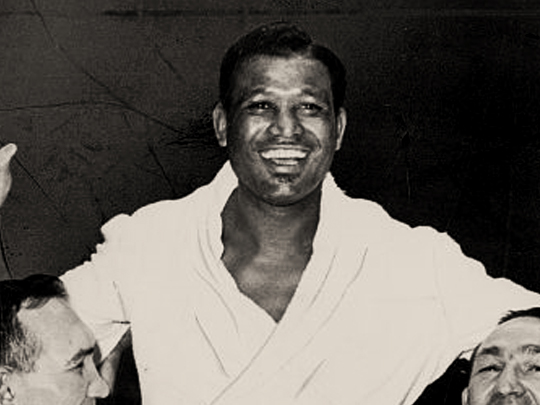
3 May 1921 – 12 April 1989 (Aged 67)
Robinson is widely regarded as one of the greatest pound-for-pound boxers of all time, holding the world welterweight title from 1946 to 1951, and later becoming the first-ever fighter to win a divisional world title five times.
Robinson’s amateur career was a remarkable 85-0 before he won 40 consecutive fights at the start of his pro career.
During this era, he was denied a title shot as he refused to cooperate with the mafia, who had a major influence over boxing.
At the age of 30, Robinson had racked up 128 pro victories, with only 1 loss and 2 draws up to that point.
In his 25-year boxing career, Sugar Ray’s record stood at 175-19-6, with 110 of those wins coming via knockout.
Robinson was known for his lavish lifestyle, he is credited with being the first boxer to have an entourage travel with him. This flashy spending led to him having to fight long past his prime.
In his later life, Robinson struggled financially, before being diagnosed with Alzheimer’s disease. He died at the age of 67.
In 1990, Robinson was inducted into the International Boxing Hall of Fame.
Mel Blanc
(Voice Actor/Entertainer)
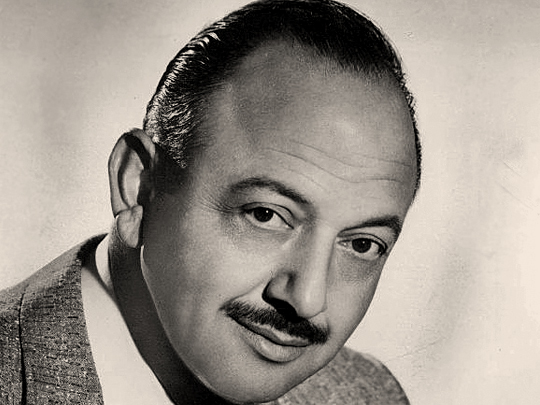
30 May 1908 – 10 July 1989 (Aged 81)
Blanc was a legendary American voice actor, known in Hollywood as “The Man of a Thousand Voices”.
His best-known characters are Bugs Bunny, Tweety Bird, Porky Pig, Daffy Duck, Yosemite Sam, among many more.
In 1937, Blanc worked on his first cartoon with Warner Bros. after starting his career on the radio ten years earlier.
From then until his death over 60 years later, Blanc voiced Looney Tunes characters in various programs and films.
Blanc starting smoking at the age of 9, and smoked a pack-a-day until he was forced to quit at the age of 77 when he was diagnosed with lung disease.
Shortly before his death, he was found to have heart disease also.
The final project in which he was involved, Jetsons: The Movie, was released in 1990. Blanc died on July 10, 1989, at the age of 81.
Porky Pig’s famous catchphrase, “That’s all folks” is engraved on his headstone.
Salvador Dalí
(Artist)
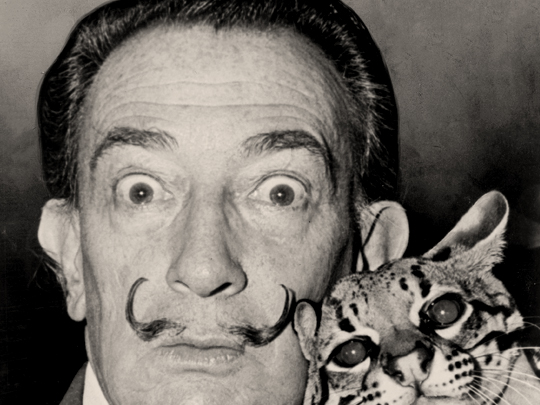
11 May 1904 – 23 January 1989 (Aged 84)
Dalí was a famous Spanish surrealist painter, known as much for his eccentric personality as for his striking artwork, he wore a trademark mustache throughout his life.
Dalí’s eccentricities often found their way into his work, with his obsession with sex and self-gratification particularly noticeable.
His flawed genius split him between people who adored him and those who did not, notably the novelist George Orwell.
In 1980, Dalí had to stop painting due to a disorder that caused his hands to weaken tremble.
Two years later his wife died, which sent into a depression, before being badly burned and confined to a wheelchair.
At the age of 84, Dalí suffered heart failure and died in Figueres, Catalonia, Spain, the city of his birth.
Dalí is buried in a crypt beneath the stage of the town’s theatre which is dedicated to him.
Bette Davis
(Actress)
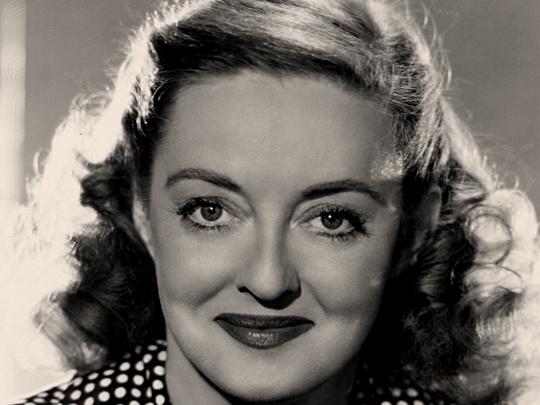
5 April 1908 – 6 October 1989 (Aged 81)
Davis was a beloved American actress, widely regarded as one of the greatest in Hollywood history.
Among the most famous of her films are All About Eve, What Ever Happened to Baby Jane, and Jezebel.
Starring in almost 100 films, Davis was renowned for her acting range across many genres.
She had a reputation for being direct and a perfectionist, which led to numerous clashes with her co-stars and studio executives.
During her career, Davis twice won the Academy Award for Best Actress and became the first woman to be honored with a Lifetime Achievement Award from the American Film Institute.
In October 1989, Davis died in Neuilly-sur-Seine having been suffering from a cancer relapse. She had been deemed too weak to fly back to America, having attended and been honored at a film festival in Spain.
Lucille Ball
(Comedian/Actress)
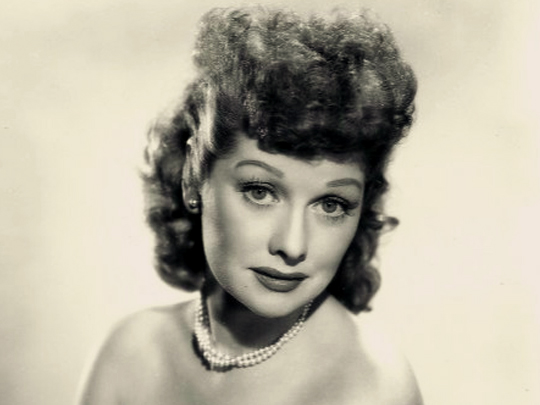
6 August 1911 – 26 April 1989 (Aged 77)
Ball was a renowned American comedian, who became a television star when she and her husband, Desi Arnaz, created the much-loved sitcom, I Love Lucy.
After Ball and Arnaz divorced in 1960, she went on to become the first woman to run a television studio, Desilu Productions.
Ball also continued to shine on television with her shows The Lucy Show and Here’s Lucy.
During her career, she was widely recognized for her talents, going on to win, among other accolades, 4 Primetime Emmy Awards, the Golden Globe Cecil B. DeMille Award in 1979, and was inducted into the Television Hall of Fame in 1984.
Ball died from heart problems at the age of 77.
She was posthumously awarded the Presidential Medal of Honour by U.S. President George H. W. Bush in July 1989.



